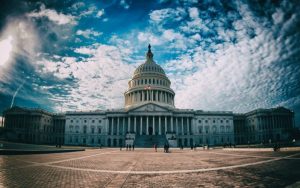Summary: The United States Supreme Court will hear arguments regarding gerrymandering, specifically the gerrymandering of districts in Wisconsin.
Wisconsin has been dealing with the problem of their district lines for several years. Democrats claim the state has drawn district lines that violate the Constitution. Republicans argue that the results of the districts are hard to keep equal since Democrats tend to congregate together in the big cities.
After making its way through the judicial process, the case has found itself before the United States Supreme Court. The court will be pressed with the responsibility of deciding if partisan gerrymandering violates the Constitution. The term gerrymander was introduced by the Massachusetts governor in 1812 when he signed into law the means to create a voting district in the shape of a salamander in order to help the electoral prospects of his political party. Since then, lawmakers have gotten more creative in their redrawing of district lines after each decennial census. They have carved out oddly shaped districts to help their political parties for state legislatures and House of Representative positions.
In the past, the Supreme Court has ordered voting districts to be redrawn based on racial gerrymanders but has not had to deal with such severe partisan gerrymandering as the Wisconsin case claims.
In 2010, Republicans gained control of the state’s government. New lines for the Wisconsin State Assembly were redrawn after the change in power but those lines have been struck down by a federal court. Republicans appealed that decision, landing it before the Supreme Court. The ruling was the first in over 30 years that declared district lines to be unconstitutional partisan gerrymandering. Judge Kenneth F. Ripple of the three-judge Federal District Court stated that the lines were “designed to make it more difficult for Democrats, compared to Republicans, to translate their votes into seats.”
An attorney for those challenging the lines, Paul Smith, stated, “Partisan gerrymandering of this kind is worse now than at any time in recent memory. The Supreme Court has the opportunity to ensure the maps in Wisconsin are drawn fairly, and further, has the opportunity to create ground rules that safeguard every citizen’s right to freely choose their representatives.” Wisconsin Attorney General Brad Schimel countered, “Our redistricting process was entirely lawful and constitutional.”
The issue of who and how district lines should be drawn is where most experts get stuck. Some would like to see independent commissions draw the lines instead of politicians. The process of redistricting relies on “wasted votes,” a process pointed out by a law professor at the University of Chicago and a lawyer for the challengers. Professor Nicholas O. Stephanopoulos and attorney Eric McGhee wrote an article where they use a formula to measure partisanship. In their article, it states that the difference between the wasted votes of the two parties, divided by the total number of votes, equals an efficiency gap.
The “wasted votes” is regarding the simple majority of 50.1 percent required to win a race. By placing all the Democrats into a few districts, the votes over the 50.1 percent line are deemed “wasted votes” and are in a sense pointless. This then allows for the Republicans to keep a 50.1 percent majority in more of the districts and give them a higher number of wins. This is what the challengers allege the Republicans in Wisconsin of doing.
The Republican National Committee argues that the efficiency gap, “is a tool that advances the partisan interests of the Democratic Party.” They explained that Democrats lacked electoral power because of geography, not gerrymandering. Democrats are more heavily located in the cities, diluting their voting power.
Who and how do you think voting districts should be drawn? Tell us your thoughts in the comments below.
To learn more about other voting issues, read these articles:
- California Reverses Policy Prohibiting Former Inmates from Voting
- VA Governor Restores Voting Rights to Convicted Felons
- Supreme Court Rules against North Carolina Redistricting
Photo: flickr.com















































